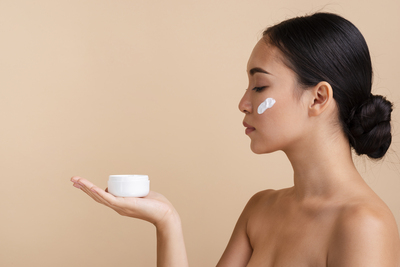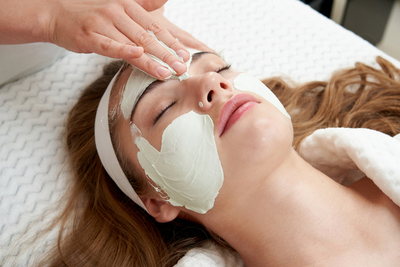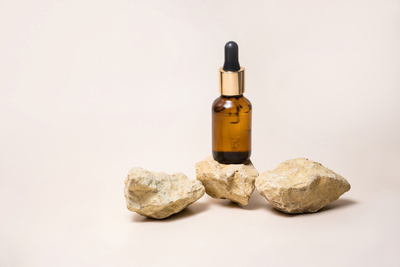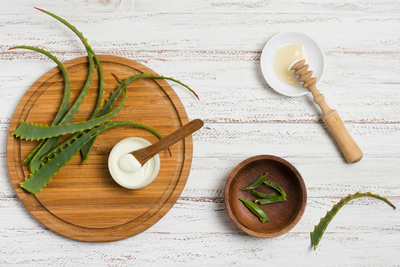Your Skin Barrier Might Already Be Damaged
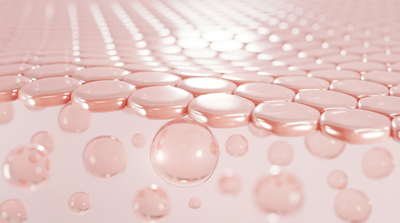
Your skin is your body’s largest organ, and its outermost layer, known as the skin barrier, plays a crucial role in keeping your skin healthy and resilient. But what exactly is the skin barrier, why is it so important, and how can you protect it?
Let’s dive into the science and learn how to keep this vital part of your skin in top condition.
What Is the Skin Barrier?
The skin barrier, also known as the stratum corneum, is the outermost layer of your skin. It’s composed of corneocytes (tough skin cells) held together by lipids such as ceramides, cholesterol, and fatty acids. Think of it as a brick-and-mortar structure, where the cells are the bricks and the lipids are the mortar.
This barrier has two primary functions:
-
Protecting Against External Aggressors – The skin barrier keeps out harmful substances like pollutants, bacteria, and allergens.
-
Preventing Water Loss – It retains moisture in the skin, keeping it hydrated and supple.
Research from MDPI confirms that the skin barrier is essential for preventing trans-epidermal water loss (TEWL)and protecting against environmental stressors.
Signs of a Damaged Skin Barrier
When the skin barrier is compromised, it can no longer effectively perform its protective and moisture-retaining functions. Here are some common signs of a weakened skin barrier:
- Redness or irritation
- Dryness or flakiness
- Increased sensitivity
- Breakouts or acne
- A feeling of tightness
- Slow healing of wounds or blemishes
If these symptoms sound familiar, your skin barrier might need some extra care.
Common Causes of Skin Barrier Damage
Several factors can weaken your skin barrier, including:
-
Over-Exfoliation – Using harsh scrubs or chemical exfoliants too often can strip away the skin’s natural lipids.
-
Harsh Cleansers – Soaps with high pH levels or sulfates can disrupt your skin’s natural acidity, making it more vulnerable.
-
Environmental Stressors – UV rays, pollution, and extreme weather conditions can degrade the skin barrier over time. Research from ScienceDirect highlights how climate and pollution accelerate skin barrier breakdown.
-
Poor Diet – A lack of essential fatty acids and antioxidants in your diet can weaken the skin barrier.
-
Stress and Lack of Sleep – Chronic stress and insufficient sleep can impair your skin’s ability to repair itself. Research from PMC emphasizes the link between stress, sleep deprivation, and skin barrier function.
How to Repair and Strengthen Your Skin Barrier
-
Use a Gentle Cleanser
Opt for sulfate-free, pH-balanced cleansers that won’t strip your skin of its natural oils. Look for ingredients like glycerin or hyaluronic acid to maintain hydration. -
Incorporate Barrier-Repairing Ingredients
Products with ceramides, fatty acids, and cholesterol help replenish the lipids in your skin barrier. Niacinamide is another excellent ingredient for calming inflammation and boosting barrier function. -
Moisturize Regularly
A rich, hydrating moisturizer can lock in moisture and provide a protective seal. Look for formulas with occlusives like shea butter or petrolatum. -
Avoid Over-Exfoliation
Limit exfoliation to 1-2 times per week and choose mild exfoliants like lactic acid or polyhydroxy acids (PHAs). -
Wear Sunscreen Daily
UV radiation is one of the biggest culprits in skin barrier damage. Use a broad-spectrum sunscreen with SPF 30 or higher every day. -
Stay Hydrated
Drink plenty of water to keep your skin hydrated from within. Eating a balanced diet rich in omega-3 fatty acids, antioxidants, and vitamins can also improve skin health. -
Avoid Irritants
Steer clear of products with alcohol, synthetic fragrances, and other potential irritants that can exacerbate barrier damage.
Myths About the Skin Barrier
-
Myth: Oily Skin Doesn’t Need Moisturizer Even if you have oily skin, your skin barrier still needs hydration. Opt for lightweight, non-comedogenic moisturizers.
-
Myth: The Skin Barrier Can Be Repaired Overnight While you might see some improvements quickly, fully repairing a compromised skin barrier can take weeks or even months of consistent care.
-
Myth: More Products Mean Better Results Layering too many products can overwhelm your skin and lead to irritation. A simple, targeted routine is often more effective.
FAQs About the Skin Barrier
-
How long does it take to repair a damaged skin barrier?
It varies, but most people see improvements within 2-4 weeks of using barrier-friendly products and avoiding irritants. -
Can the skin barrier repair itself naturally?
Yes! Your skin has a natural ability to repair itself, but using the right products and avoiding harmful practices can accelerate the process. -
Can you over-moisturize your skin?
Yes, overusing heavy moisturizers can sometimes lead to clogged pores, especially if you have oily or acne-prone skin.
Final Thoughts
Your skin barrier is your first line of defense against external aggressors and a key factor in maintaining healthy, glowing skin. By understanding its importance and adopting barrier-friendly skincare habits, you can keep your skin resilient and radiant.
Want to know how your skincare routine affects your skin barrier?
Download the SkinBuddy app to analyze your products and discover the best options for your unique skin needs!
Try SkinBuddy to find out what works for your skin, and what doesn’t.
Scan your skincare, avoid pore-clogging or irritating ingredients, and discover smarter product matches. Open the web app or download the mobile app to get started.
or
Check Products OnlineCheck if your skincare suits your skin type, sensitivity, or acne-prone needs at skinbuddy.app and discover better options that match your routine and goals. SkinBuddy makes it easy, fast, and science-backed.
Scan to get started:

Web App (mobile only)

App Store & Google Play




